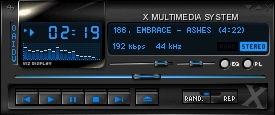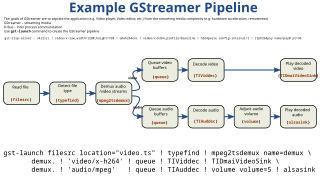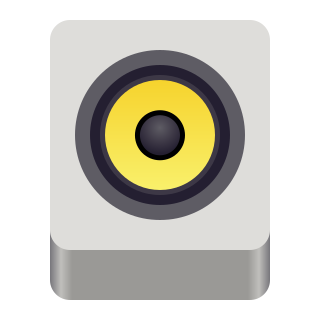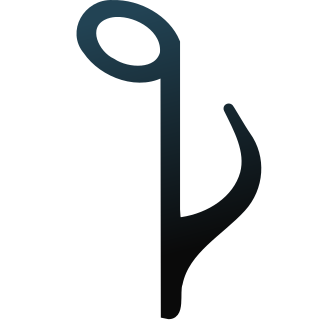
In computing, a plug-in is a software component that adds a specific feature to an existing computer program. When a program supports plug-ins, it enables customization.

X Multimedia System (XMMS) is an audio player for Unix-like systems released under a free software license.

OpenMPT is an open-source audio module tracker for Windows. It was previously called ModPlug Tracker, and was first released by Olivier Lapicque in September 1997.

GStreamer is a pipeline-based multimedia framework that links together a wide variety of media processing systems to complete complex workflows. For instance, GStreamer can be used to build a system that reads files in one format, processes them, and exports them in another. The formats and processes can be changed in a plug and play fashion.

FastTracker 2 is a music tracker created by Fredrik "Mr. H" Huss and Magnus "Vogue" Högdahl, two members of the demogroup Triton who set about releasing their own tracker after breaking into the scene in 1992 and winning several demo competitions. The source code of FastTracker 2 is written in Pascal using Borland Pascal 7 and TASM. The program works natively under MS-DOS.

Rhythmbox is a free and open-source audio player software, tag editor and music organizer for digital audio files on Linux and Unix-like systems.
MOD is a computer file format used primarily to represent music, and was the first module file format. MOD files use the “.MOD” file extension, except on the Amiga which doesn't rely on filename extensions; instead, it reads a file's header to determine filetype. A MOD file contains a set of instruments in the form of samples, a number of patterns indicating how and when the samples are to be played, and a list of what patterns to play in what order.

Module file is a family of music file formats originating from the MOD file format on Amiga systems used in the late 1980s. Those who produce these files and listen to them form the worldwide MOD scene, a part of the demoscene subculture.
ModPlug is the name for the series of computer software for creating and playing module files, originally developed by Olivier Lapicque.

Sound Juicer is the official CD ripper program of GNOME. It is based on GTK, GStreamer, and libburnia for reading and writing optical discs. It can extract audio tracks from optical audio discs and convert them into audio files that a personal computer or digital audio player can play. It supports ripping to any audio codec supported by a GStreamer plugin, such as Opus, MP3, Ogg Vorbis, FLAC and uncompressed PCM formats. Versions after 2.12 implement CD playing capability. Last versions produce lossy formats with default GStreamer settings.
S3M is a module file format, the successor to the STM format used by the original Scream Tracker. Both formats are based on the original MOD format used on the Amiga computer.

Buzztrax is a free software project designed to create a clone of the Buzz music composer. Its functionality is to preserve the playability of the compositions made with Buzz. Songs are made by adding virtual sound generators and effects, connecting them, recording short musical phrases and arranging them in the sequencer. For distribution, songs can be exported to common audio formats such as OGG, MP3, WAV and many others.
The following comparison of audio players compares general and technical information for a number of software media player programs. For the purpose of this comparison, "audio players" are defined as any media player explicitly designed to play audio files, with limited or no support for video playback. Multi-media players designed for video playback, which can also play music, are included under comparison of video player software.

Impulse Tracker is a multi-track music tracker. Originally released in 1995 by Jeffrey Lim as freeware with commercial extensions, it was one of the last tracker programs for the DOS platform.
This article deals with music software created for the Amiga line of computers and covers the AmigaOS operating system and its derivates AROS and MorphOS and is a split of main article Amiga software. See also related articles Amiga productivity software, Amiga programming languages, Amiga Internet and communications software and Amiga support and maintenance software for other information regarding software that run on Amiga.

Quod Libet is a cross-platform free and open-source audio player, tag editor and library organizer. The main design philosophy is that the user knows how they want to organize their music best; the software is therefore built to be fully customizable and extensible using regular expressions and boolean logic. Quod Libet is based on GTK and written in Python, and uses the Mutagen tagging library.
XMPlay is a freeware audio player for Windows. Initially released in 1998, it is often used as a reference player for tracker audio files.







